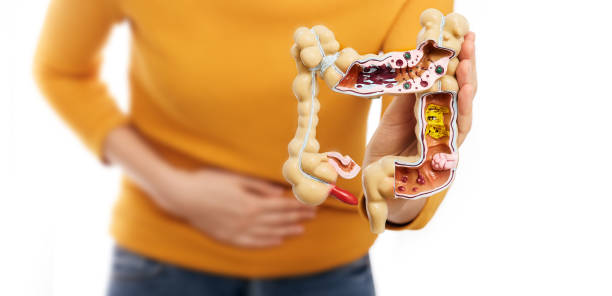Diverticulosis is a condition where small pockets or pouches called diverticula develop inside the walls of the intestine; they are primarily found in the large intestine and are more common in people above 40.
Diverticulosis develops over a long time but usually does not show any symptoms till later. As you digest food daily and waste passes through your intestines, they push against the weak spot until it begins to cave in and eventually form a pouch.
The term diverticulosis is derived from the word divert, indicating that the path through your intestine is diverting into side pockets or pouches. Diverticulitis is also another condition that indicates an inflammation of these pouches due to an infection. So, diverticulosis means the formation of pockets, while diverticulitis is when the pockets get inflamed due to an infection.
Causes
Diverticulosis doesn’t have a known specific cause, but some factors can contribute to it, including:
- Tobacco.
- Alcohol.
- Age.
- Low-fibre diet.
- Genetic predisposition.
Symptoms of Diverticulosis
Many cases of diverticulosis don’t come with symptoms, but if you do have symptoms, it will be bloating, constipation or diarrhoea. However, it is more common for people to notice symptoms of diverticulitis, including fever, lower abdominal pain, nausea, vomiting, and diarrhoea.
It is also possible to have other conditions that affect your intestines and make the diverticula more sensitive to pressure; such conditions can be inflammatory bowel disease and irritable bowel disease. If you are prone to constipation, it can also make this condition worse.
Treatment
Diverticulosis doesn’t go away on its own, but it is not harmful, so it usually doesn’t require treatment. However, your doctor may recommend some options to manage symptoms, such as pain-relieving med, anti-diarrhoea medications, etc.
They will also try to stop it from progressing to diverticulitis. If it progresses to diverticulitis at any point, then treatment will be needed. Still, a doctor will first rule out other gastrointestinal conditions like irritable bowel syndrome, Crohn’s disease, IBD, and appendicitis. Then, antibiotic treatment will be prescribed to eliminate the infection.



